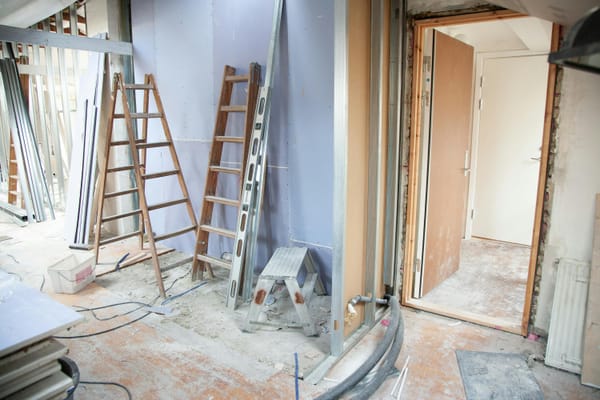The Role of RFID and Smart Taps in the Modern Beverage Industry

Introduction: From Pints to Pixels
As digital transformation reshapes every sector of the hospitality industry, beverage service is undergoing a revolution of its own. Leading this shift is the integration of RFID (Radio-Frequency Identification) technology and smart tap systems—two innovations that are turning the once analog act of pouring a drink into a data-rich, personalized, and frictionless experience.
Together, RFID and smart taps form the foundation of modern self-pour systems and play a critical role in improving customer service, operational efficiency, regulatory compliance, and profitability. This article breaks down how these technologies work, what benefits they offer, and how they are shaping the future of beverage service across bars, restaurants, hotels, and entertainment venues.
What Is RFID and How Does It Work in Beverage Service?
RFID stands for Radio-Frequency Identification—a technology that uses electromagnetic fields to automatically identify and track tags attached to objects. In the beverage industry, RFID typically appears as:
- Wristbands
- Tap cards
- Mobile devices with NFC (Near Field Communication)
Each tag is uniquely encoded and linked to a user profile, allowing systems to:
- Authenticate legal drinking age
- Track individual pour behavior
- Apply pour limits
- Process payments
- Trigger loyalty rewards
When a customer taps their RFID device on a reader located at the beverage station, the system grants access to the taps and begins tracking usage in real time.
What Are Smart Taps?
Smart taps are digitally integrated pour systems that measure and control the flow of liquid from a keg or container. They include components such as:
- Flow meters (to track ounces poured)
- Digital displays (showing drink info, price per ounce, and branding)
- Software integrations (for POS, CRM, and inventory tracking)
- Real-time analytics dashboards
- Control valves (to start, stop, or restrict pours)
Together with RFID, smart taps automate and personalize the beverage experience—allowing venues to serve hundreds of guests with minimal staff oversight.
Key Benefits of RFID + Smart Tap Systems
1. Frictionless Customer Experience
With RFID-enabled access and intuitive digital tap interfaces, guests can:
- Quickly check in
- Serve themselves
- Read drink descriptions before committing
- Monitor their spend in real time
This removes bottlenecks at the bar and delivers a sense of autonomy that customers increasingly prefer.
Survey Insight: More than 65% of customers report that self-pour systems with RFID offer a better overall experience than traditional ordering models.
2. Real-Time Tracking and Billing
Every ounce poured is logged and associated with a user account or session. This enables:
- Transparent, pay-as-you-pour pricing
- Automatic check-out or pre-authorized billing
- Split group usage tracking (ideal for parties or events)
Guests enjoy an on-demand, no-surprises billing model that reflects modern payment expectations.
Operational Benefits for Businesses
1. Reduced Labor Needs
One staff member can now oversee what previously required several bartenders. This translates to:
- Fewer employees per shift
- Lower payroll and training costs
- More efficient scheduling
2. Improved Inventory Control
Smart taps log every pour, allowing operators to monitor:
- Product depletion in real time
- Discrepancies between sales and stock
- Overperforming and underperforming taps
- Ideal keg rotation schedules
This reduces shrinkage, prevents outages, and supports more strategic purchasing.
3. Regulatory Compliance and Responsible Service
RFID systems can enforce compliance through:
- ID verification
- Pour limits (per hour, per session, or per day)
- Time-based shutoff controls
- Staff override capabilities
These tools help venues stay within legal guidelines while maintaining guest satisfaction.
Personalized Marketing and Loyalty Integration
With RFID and smart tap data, venues can build robust guest profiles tied to actual behavior—not just guesses or transaction history.
Example Touchpoints:
- "Welcome back! Your favorite IPA is on tap again."
- "You’ve poured 100 oz this month—enjoy 10 oz free!"
- "Try three new beers this week and unlock a free glass."
This level of personalization drives:
- Higher return visits
- More engagement with promotions
- Increased average spend per guest
Use Cases Across Industries
1. Taprooms and Breweries
- Guests create custom flights on-demand
- Staff can focus on tours or merchandise
- RFID wristbands double as branded souvenirs
2. Hotels and Resorts
- Self-pour stations near check-in or in VIP areas
- Room-key integration for seamless billing
- Data-driven beverage preferences linked to guest CRM
3. Sports Arenas and Entertainment Venues
- Faster service during halftime or intermission
- Portable smart tap carts reduce crowding
- Integrated loyalty for season ticket holders
4. Cruise Lines and All-Inclusive Resorts
- Tap access built into guest bracelets
- Controlled limits to prevent overconsumption
- Usage tracking for package reconciliation
RFID Security and Data Privacy
Security is a critical component of RFID integration. Key safeguards include:
- Encrypted tag IDs
- Role-based system access for staff
- Anonymized guest analytics
- Compliance with GDPR and other data privacy laws
It’s essential to ensure customers feel confident that their data is secure, and that usage is tied only to product interaction—not personal identifiers unless explicitly opted in.
Setup and Integration Considerations
Successful implementation of RFID + smart tap systems requires:
- Reliable Wi-Fi or hardwired internet connection
- POS and payment gateway compatibility
- Tap hardware installation with flow calibration
- Staff training for onboarding and troubleshooting
- Customer onboarding interface (digital or kiosk-based)
Vendors typically offer full-service installation and ongoing tech support to ensure uptime and performance.
ROI and Long-Term Impact
Venues that deploy RFID and smart tap systems often report:
- Labor savings of 25–40%
- Waste reduction by 20% or more
- Faster average service time by 50–70%
- Higher guest satisfaction and retention
Over time, the combination of better margins, stronger loyalty, and smarter data helps businesses scale more efficiently while staying aligned with customer expectations.
The Future of RFID and Smart Tap Tech
Emerging developments in this space include:
- Biometric integration for seamless check-in
- Facial recognition or palm-scanning for age verification
- AI-powered pour suggestions based on guest mood or season
- Cross-venue guest profiles for multi-location hospitality brands
- Integration with AR/VR for immersive beverage experiences
As technology evolves, RFID and smart taps will become not just operational tools—but central components of brand identity and guest interaction.
Conclusion: Smarter Service, Stronger Business
The combination of RFID and smart tap systems is redefining how the modern beverage industry operates. From enhanced guest control to detailed analytics and compliance automation, these technologies offer an integrated approach to solving the industry's most persistent challenges.
Hospitality brands that invest in this technology now aren’t just upgrading their service—they’re future-proofing their business with a system that adapts to shifting expectations, rising costs, and a digital-first world.
In the age of data and personalization, every pour becomes a moment of insight—and every guest becomes more than just a transaction.



